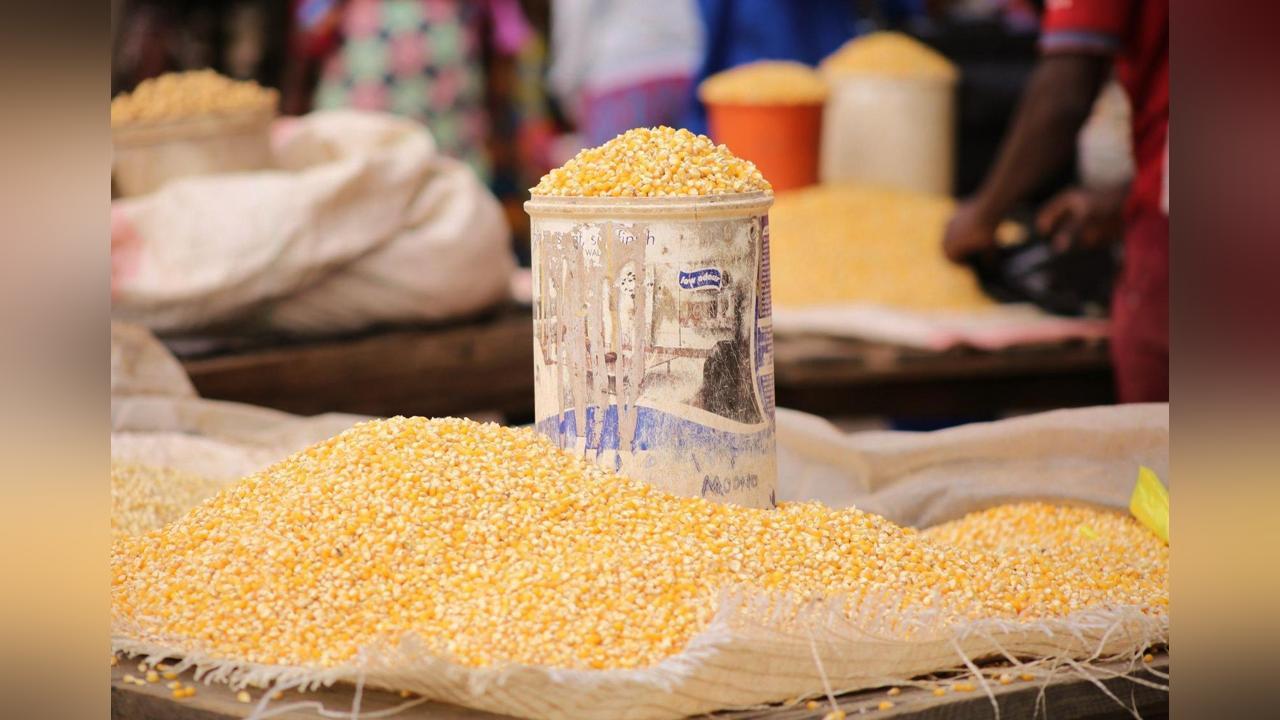Africa-Press – Ghana. Dr Amos Rutherford Azinu, the Founder of Legacy Crop Improvement Centre says Ghana’s projected 67 per cent rise in maize imports for the 2025/26 season, could devastate local farming communities and undermine long-term national food security.
He has therefore urged an immediate shift toward domestic support for farmers and sustainable agricultural reform.
In an interview with the Ghana News Agency, Dr Azinu described the import projection as a “troubling shift” that risked displacing local production and weakening Ghana’s food sovereignty.
He said the timing of the import increase was particularly concerning, as thousands of farmers across the country were still struggling to offload unsold grain from the previous season.
“This paradox reveals a fundamental flaw in our food security strategy, where we prioritise imports over empowering domestic producers,” he said.
Dr Azinu acknowledged that the 2024 drought, which affected eight of Ghana’s sixteen regions, had reduced harvested maize areas by 19 per cent and slashed production by 28 per cent to 2.6 million tonnes.
However, he critiqued the government’s “knee-jerk response” of flooding the market with cheap imported corn, saying that it could “undermine recovery efforts and sow the seeds of long-term dependency.”
Citing a recent survey, Dr Azinu noted that 15.5 per cent of households reported food crop harvests going to waste due to lack of market demand.
“Even before the import surge, farmers were struggling to find buyers,” he said. “Unlike U.S. farmers who can afford to wait for better prices, Ghanaian farmers lack the storage infrastructure and financial resilience to weather market downturns.”
He emphasised that Ghana’s corn import dependency, previously at 11 per cent, was set to skyrocket, with maize imports forecasted to hit 300,000 tonnes in the 2024/25 season, nearly 11 times the typical volume.
“This sends a clear message to our farmers: the government has little faith in their capacity,” Dr Azinu stated.
He also pointed out the irony in the government’s August 2024 grain export ban, which was intended to protect domestic supplies, while simultaneously offering tax incentives to encourage private sector imports.
“This mixed messaging breeds uncertainty and erodes farmer confidence,” he said.
Dr. Azinu proposed a comprehensive strategy to reverse the trend, calling for guaranteed purchase programmes for farmers, investment in post-harvest storage infrastructure, and the development of weather-resilient farming systems.
“We must stop treating drought as an inevitable disaster,” he urged, advocating for irrigation systems, drought-resistant seed varieties, and climate-smart agricultural practices.
He further recommended the creation of price stability mechanisms, such as commodity exchanges and minimum price guarantees, to encourage continued production even in difficult years.
“Every tonne of imported corn represents lost income, reduced rural employment, and increased dependency on volatile international markets,” he warned.
Dr Azinu cautioned that Ghana’s current trajectory risks creating a vicious cycle: reduced domestic production justifies more imports, which further undermines local farmers, leading to even less production.
“Our agricultural output has been declining since the 1960s,” he said, “and this surge in imports could accelerate that decline.”
He stated that Ghana stands at a crossroads, stressing; “The easy path of importing cheap corn may solve short-term concerns, but it mortgages our agricultural future.”
“The harder, more sustainable path requires investing in our farmers, improving production systems, and building resilience,” he added.
“The farmers sitting on unsold grain aren’t just statistics, they are the backbone of our food system. Their success or failure will determine whether Ghana achieves genuine food security or becomes another African nation dependent on imports,” Dr Azinu said.
He said as Ghana prepared for what could be a transformative agricultural year, the question was whether it could afford to support its farmers or not.
For More News And Analysis About Ghana Follow Africa-Press







